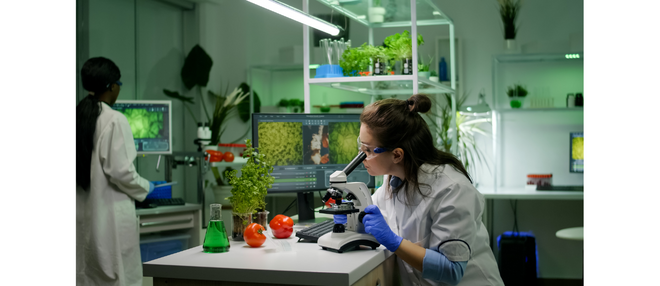
Update on 2024-04-15
How to Become a Food Scientist in India 2025?
Details to Become a Food Scientist in India in 2025
A food scientist's task is to determine, research, and test various ingredients and foods to determine whether or not they are safe for consumption by humankind. They develop innovative methods and processes for food production, processing, and packaging using their understanding of the physical and life sciences.
They also implement regulatory measures to ensure that the final product complies with the nation's food laws and regulations in terms of quality and safety.
They research new ways to keep food fresh and safe for a longer period of time; work on processing methodologies to reduce time and cost while maintaining nutrients and quality, and ensure that the food is safe and does not have any risk of contamination. They also use scientific techniques to specify accurate nutritional information for food labeling.

The preponderance of food scientists in corporate companies is recruited by food processing corporations' R&D departments. Many people hold positions as production managers or quality control inspectors in processing companies.
Some work in academic institutions doing both teaching and research. Others work in food marketing expenses or technology advertising.
Food scientists develop new food items, plan packaging strategies, research shelf life, and experiment with chemicals. Testing can be used for a number of things, such as enhancing food composition, removing dangerous additives, and evaluating food to find out how much fat, protein, sugar, or vitamin it has so that it can be labeled. They frequently work for colleges, businesses involved in food production, or governmental organizations.
Procedure to Become a Food Scientist in India 2025
- Taking Bachelor's Degree in Food Technology
A bachelor's degree in a relevant field, such as food science, chemistry, or microbiology, is the minimum requirement for those who desire to pursue a career as a food scientist. In India, there are two options for the undergraduate programme: a 4-year B. Tech. programme in food technology or a 4-year B.Sc. program in food science and technology.

Students learn both research methodology and the fundamentals of food science in these courses. aspects include food chemistry, food microbiology, food processing, food quality, and human nutrition.
- Taking a Master’s Degree in Food Technology
For a career as a food scientist in various government laboratories, institutions like BIS and FSSAI, or university research posts like CFTRI, ICAR, DFRL, etc., a Master of Science or Ph.D. in food science is required.
A graduate in food science may choose to pursue a master's degree with a focus on engineering, manufacturing processes, or food chemistry. The two-year master's programme comprises research/project work and a thesis on a subject related to food science, nutrition, or biochemistry.

In-depth research, a thesis, and research articles on any present or emerging technology, product or packaging, biochemistry, or nutrition may take three to four years for a Ph.D. programme.
- Taking Experience in Food Technology
By expanding one's experience through numerous short-term workshops or certification courses like ISO, HACCP, regulation, or new technologies offered by various colleges or government entities, one can always gain greater prospects. A qualifying exam must be passed successfully to obtain a certificate.
Must Required Things to Become a Food Scientist 2025
comprehension of analytical techniques and tools. A person should be knowledgeable about food chemistry and microbiology. Capabilities include critical thinking, data analysis, data interpretation, decision-making, and mathematics.
An advanced degree in food science or an intimately connected field is usually recommended. Ph.D. candidates are generally hired for higher positions in various organizations.
Career Opportunities for Food Scientists
Compared to other occupations, a career as a food scientist offers fewer opportunities. Few people are hired by governmental bodies. Food scientists will surely always be needed to provide novel solutions to increase the productivity of the food processing industry.
With an 8% predicted job growth, there aren't many jobs in this field of trade. The market's need for food scientists may rise in the future as a result of population and educational growth. Food scientists can anticipate a 16% increase in employment in the food processing sector in the coming years.

Rapid global population growth has led to worries about diet, health, and food safety. To meet everyone's needs, productivity will have to be increased in both quality and quantity.
As people become more conscious of various types of food and their effects on the food cycle and environment, more chances for research will arise. After obtaining expertise in the field, a food scientist may advance to a senior position as a production manager or research manager.
Related Articles
Trending News
Copyright @2024.www.collegedisha.com. All rights reserved
